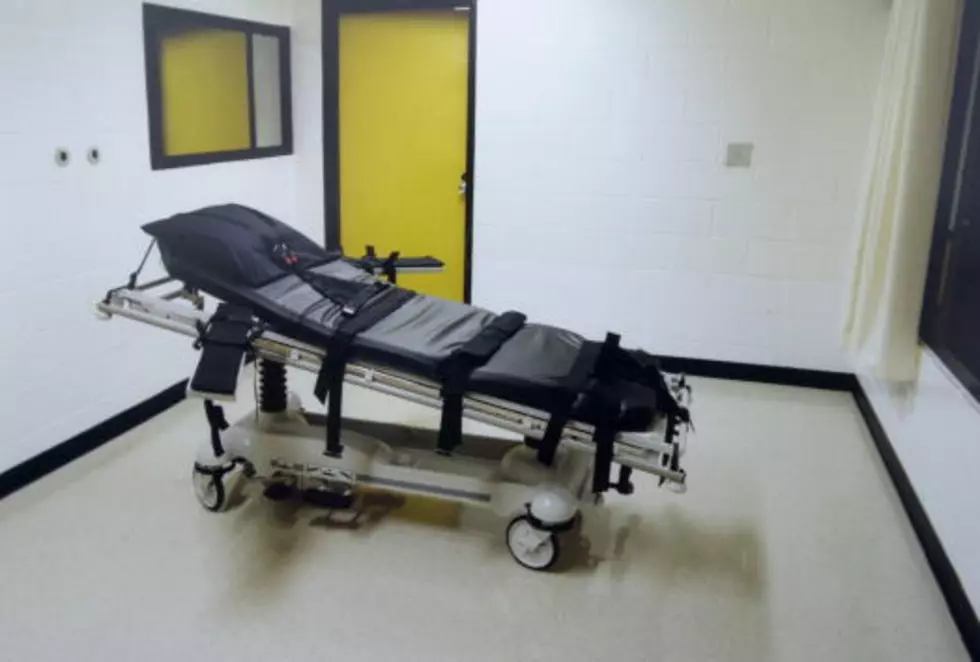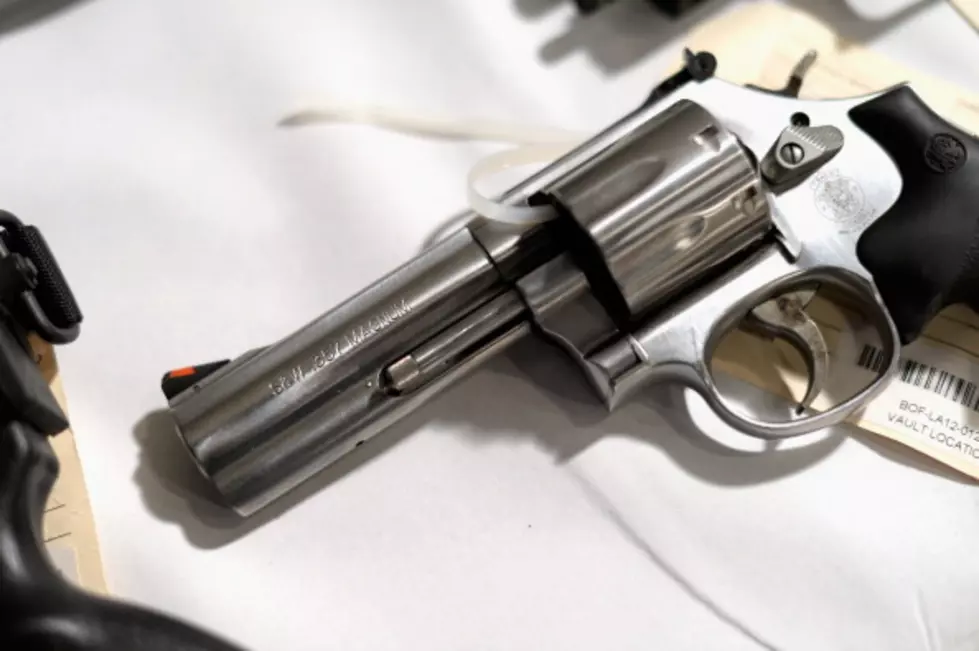
Ohio Uses Execution Drug, For Last Time, On Killer
LUCASVILLE, Ohio (AP) — A white gunman who spewed racial slurs before fatally shooting a black man and a police officer in a 1994 rampage at his Ohio apartment complex has been executed with the state's last use of its execution drug.
Sixty-one-year-old Harry Mitts Jr. died Wednesday by lethal injection of the powerful sedative pentobarbital at the state prison in Lucasville.
Ohio's supply of pentobarbital is expiring. The state expects to announce its new execution method by Oct. 4.
Mitts was convicted of aggravated murder in the rampage against suburban Cleveland neighbors and police officers. He acknowledged killing a neighbor's black boyfriend and a white Garfield Heights police sergeant who responded.
The Ohio Parole Board and Republican Gov. John Kasich (KAY'-sik) had denied Mitts' pleas for mercy. Mitts said he found God in prison after receiving a Bible from the slain officer's family.
THIS IS A BREAKING NEWS UPDATE. Check back soon for further information. AP's earlier story is below.
Ohio planned to execute a white gunman who spewed racial slurs before fatally shooting a black man and a police officer in a 1994 rampage at his suburban Cleveland apartment complex, using a lethal injection that was to be the last before the state's supply of its execution drug expires.
Harry Mitts Jr., 61, was scheduled to die Wednesday at the state prison in Lucasville after years of acknowledging his crimes and saying he's repented.
Mitts was convicted of aggravated murder and attempted murder in the rampage against random neighbors and responding police officers.
He was on constant watch headed into the 10 a.m. execution after two recent high-profile prison suicides in the state. With his execution, Ohio's valid supply of the execution drug pentobarbital was also set to expire. Officials expect to announce the state's new procedure next month.
With clemency denied and his legal appeals exhausted, Mitts has been concentrating on spiritual matters during what are expected to be his final days, attorney Jeff Kelleher said Tuesday.
"He is more concerned with the higher power right now than what those like myself or the state might or might not do," Kelleher said.
The prisons department said Mitts visited with his attorneys, a friend and a spiritual adviser Tuesday evening.
Mitts has said he's repented for the crimes committed during his drunken racially charged rampage. His criminal record was minimal before and since.
Wearing what witnesses described as yellow goggles and wielding a gun with a laser sight and later other weapons, Mitts first shouted racial epithets and killed a neighbor's black boyfriend, John Bryant, and then shot and killed white Garfield Heights police Sgt. Dennis Glivar as he responded to the scene. Mitts also shot and wounded two other police officers.
Mitts told the Ohio Parole Board he had drunk heavily because he was distraught over his divorce and had likely shot Bryant to draw police to his home in hopes they would shoot and kill Mitts. He said he wasn't a racist and didn't remember directing racial slurs at Bryant before shooting him. He said he couldn't say why he didn't shoot two white neighbors he encountered ahead of Bryant.
The current Garfield Heights police chief, Bob Sackett, told the panel during an August hearing that Mitts' denial of his racial motivation was an insult to Bryant's family.
"Nothing Mitts said or did on the night of the crime suggested that Mitts did in fact want to die at the police's hands or that he was not in control of his own actions," he told the board. "Mitts murdered two men in cold blood, one because of the color of his skin, one because of the uniform he wore."
Among a patchwork of actions that day, Mitts called and threatened the husband of his ex-wife, then-Grand River Police Chief Jonathon Salerno, saying he at one time intended to kill him, too. Salerno said Mitts was an aggressive person who hated blacks and the police.
Prosecutors said that, with the murders, multiple shootings and additional death threats carried out that day, Mitts "exhibited complete disregard for the lives of officers and innocent bystanders at the scene."
"That further tragedy did not result from the bedlam that Mitts created on August 14, 1994, is in many respects a miracle," a clemency report said.
His pleas for mercy were denied by the Ohio Parole Board and Republican Gov. John Kasich.
Mitts, at his clemency hearing, said he had found God in prison. After his conviction, he spoke of receiving a Bible from Glivar's mother and sister and a letter expressing their forgiveness and urging him to seek repentance.
Copyright 2013 The Associated Press. All rights reserved. This material may not be published, broadcast, rewritten or redistributed.
More From NewsTalk 940 AM









